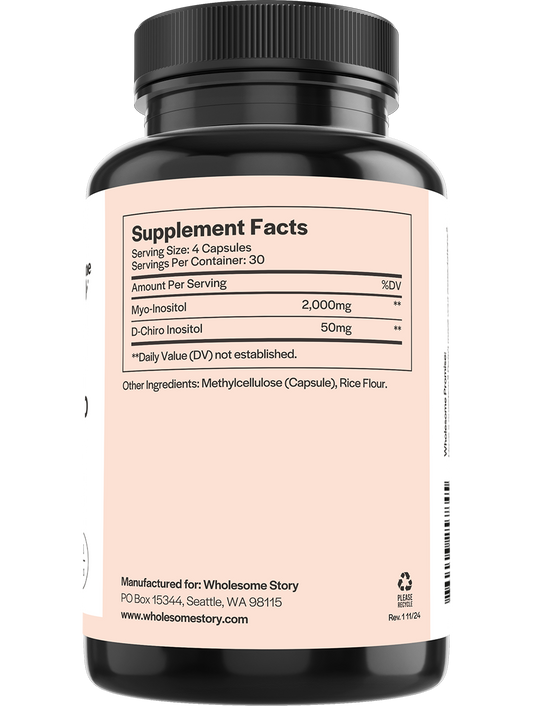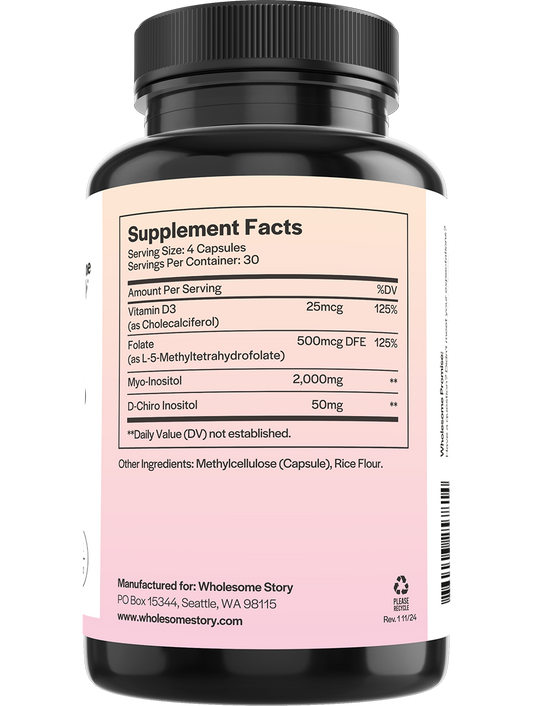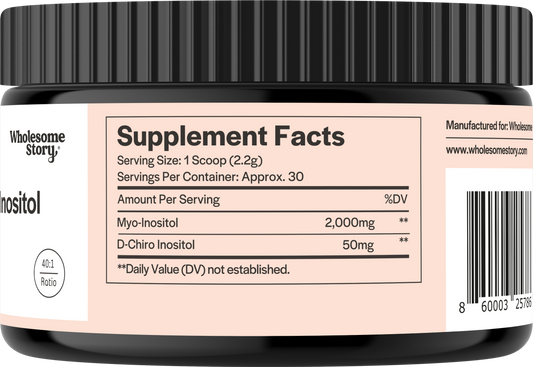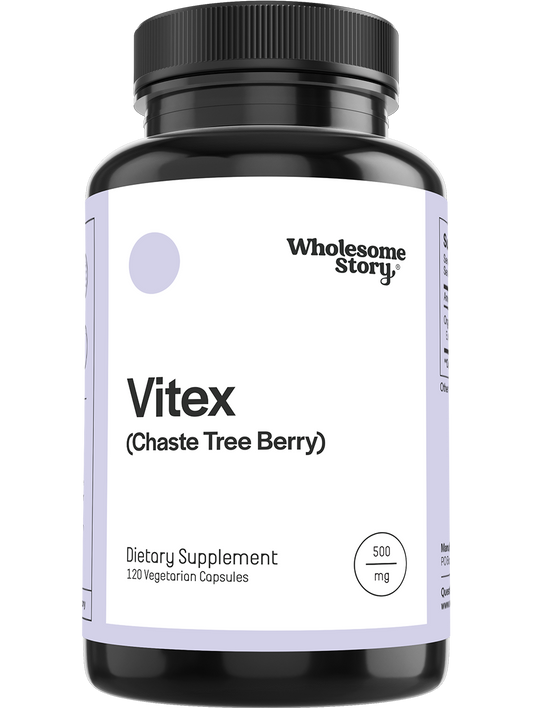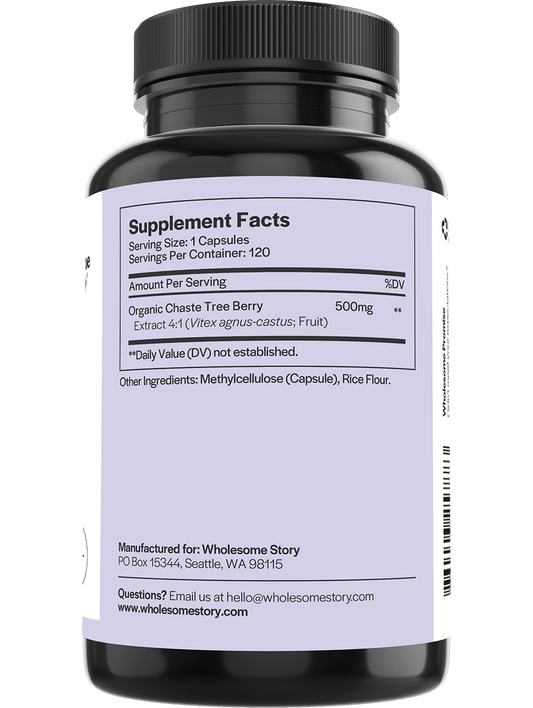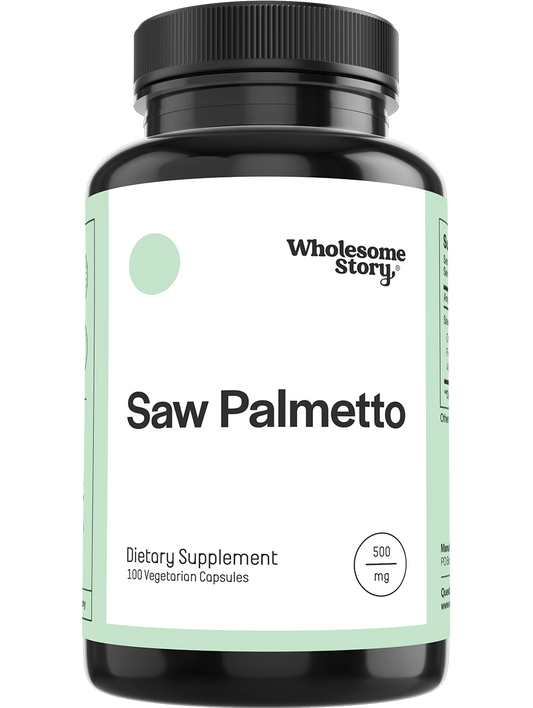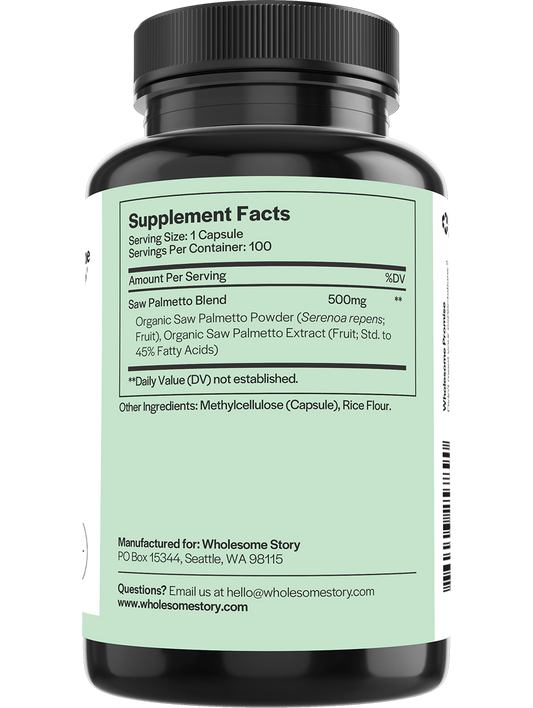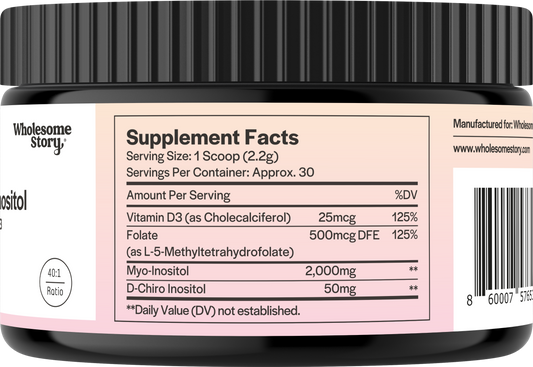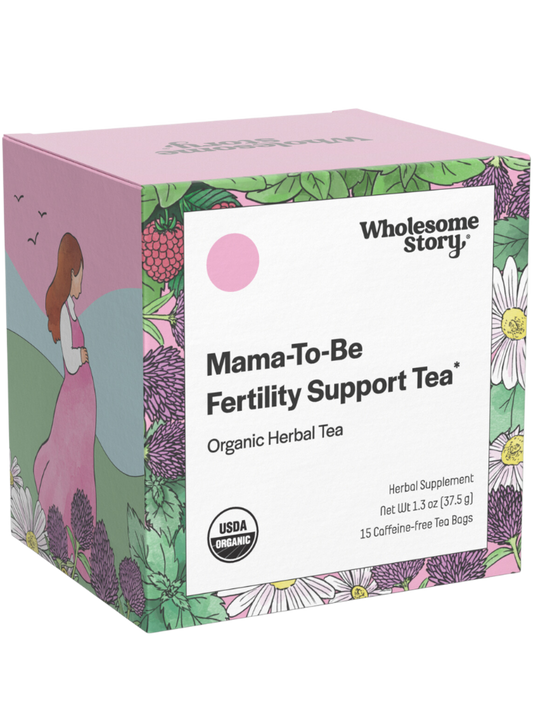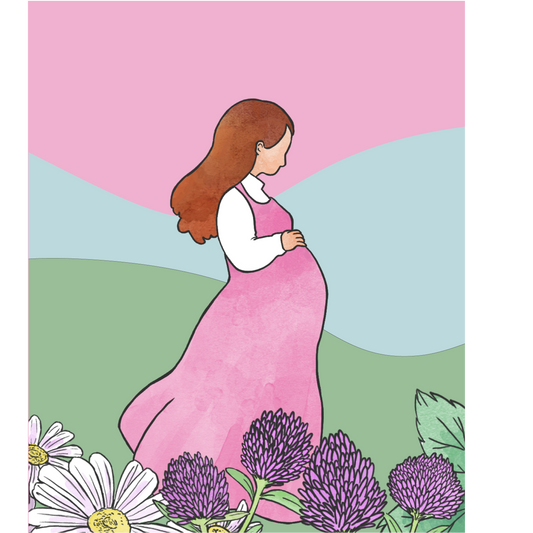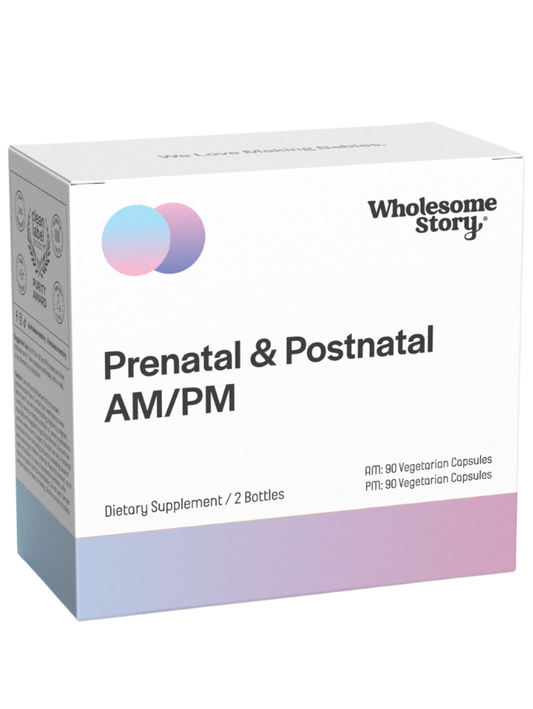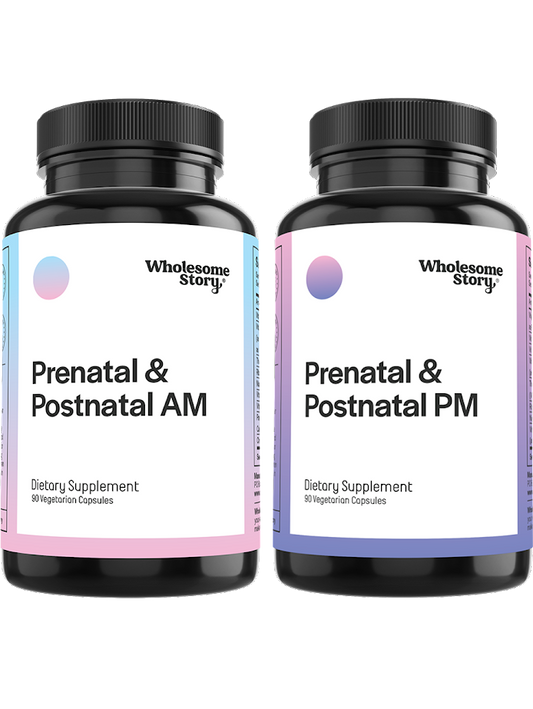Fertility Support* Supplements For Women
At Wholesome Story, we know that trying to have a baby can bring a lot of different feelings. That's why we want to give you the information and help you need to feel confident and supported as you go through this.
Collection: Fertility Support Supplements* For Women
-
Myo-Inositol & D-Chiro Inositol
Supports your:
- Hormones
- Metabolic System
- Cycle Regularity
- Fertility (Her)
Regular price $27.95Sale price $27.95 Regular priceUnit price / per -
Myo-Inositol & D-Chiro Inositol + MTHF Folate + Vitamin D3
Supports your:
- Hormones
- Metabolic System
- Cycle Regularity
- Fertility (Her)
Regular price $29.95Sale price $29.95 Regular priceUnit price / per -
Myo-Inositol & D-Chiro Inositol Powder
Supports your:
- Hormones
- Metabolic System
- Cycle Regularity
- Fertility (Her)
Regular price $27.95Sale price $27.95 Regular priceUnit price / per -
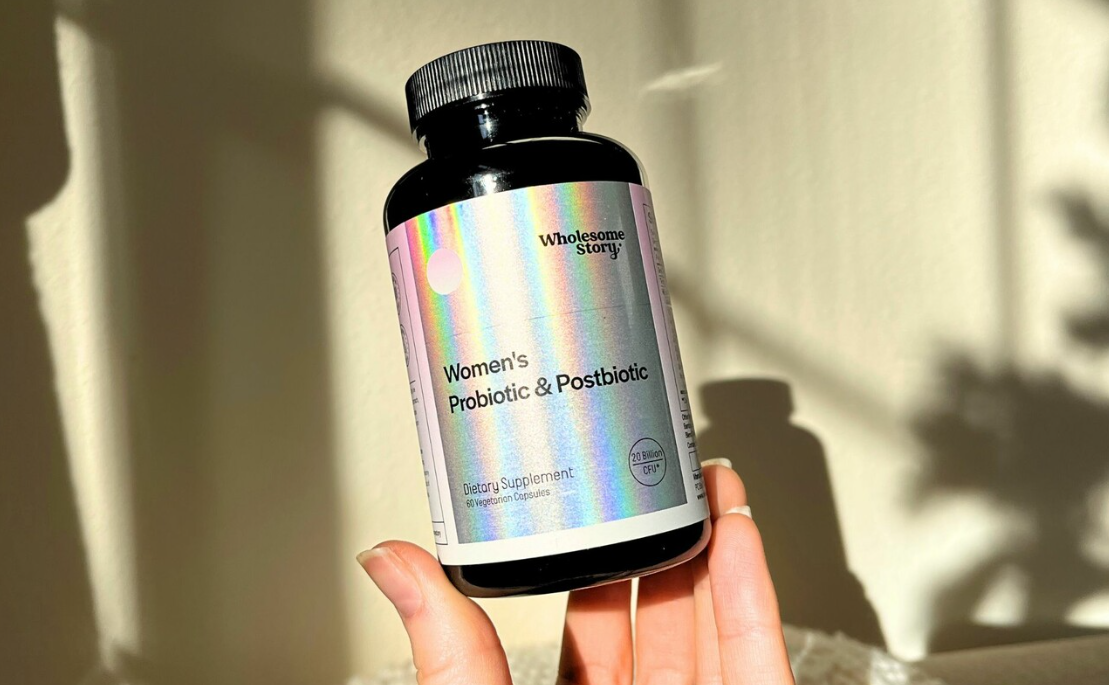
Women's Probiotic & Postbiotic
Nourish your family with our premium supplements to enjoy more good times ahead together.
-
Vitex (Chaste Tree Berry)
Supports your:
- Hormones
- PMS
- Hot Flashes
- Fertility (Her)
Regular price $25.95Sale price $25.95 Regular priceUnit price / per -

Women's Probiotic & Postbiotic
Nourish your family with our premium supplements to enjoy more good times ahead together.
-
Saw Palmetto
Supports your:
- Hormones
- Hair, Skin, & Nails
- Cycle Regularity
- Fertility (Her)
Regular price $25.95Sale price $25.95 Regular priceUnit price / per -
Myo & D-Chiro Inositol + MTHF Folate & Vitamin D3 Powder
Supports your:
- Hormones
- Metabolic System
- Cycle Regularity
- Fertility (Her)
Regular price $29.95Sale price $29.95 Regular priceUnit price / per -
Mama-To-Be Fertility Support Tea
Supports your:
- Hormones
- Nutrition
- Nerves/Stress
- Fertility (Her)
Regular price $16.95Sale price $16.95 Regular priceUnit price / per -
Prenatal & Postnatal | 2 Bottles AM & PM
Supports your:
- Pregnancy
- Nutrition
- Nausea
- Gut & Digestion
- Fertility (Her)
Regular price $69.95Sale price $69.95 Regular priceUnit price / perSold out
Understanding Female Fertility And Hormonal Balance
When we talk about fertility, there's a lot happening inside your body that you might not know about. Think of it like a complicated game where different hormones are the players, and each one has an important job. Here's what some of them do:
- FSH (Follicle-Stimulating Hormone): FSH, which stands for Follicle-Stimulating Hormone, helps the eggs inside your ovaries to grow. Ovaries contain many small sacs called follicles, and each follicle holds an immature egg. FSH signals these follicles to start developing. This is the first step in getting an egg ready to be released from the ovary.¹
- LH (Luteinizing Hormone): LH, or Luteinizing Hormone, signals the body to start ovulation. Ovulation is when a mature egg is released from one of the ovaries. This egg then travels down the fallopian tube, where it can be fertilized by sperm. LH triggers this release of the egg, which is a key step in the process of getting pregnant.²
- Estrogen and Progesterone: Estrogen and progesterone are two important hormones that help control your menstrual cycle and prepare your body for pregnancy. Estrogen helps the lining of your uterus grow, which is important if an egg gets fertilized. Progesterone helps make the uterus ready to support a pregnancy after ovulation.³
Supplements that support hormone health can potentially aid in supporting a healthy fertility journey.*
Omega-3 Fatty Acids For Reproductive Wellness
Omega-3 fatty acids, found in fish, flaxseeds, and walnuts, among other foods, are essential fats that may support fertility* by supporting:⁶
As you can see, omega-3s are an important nutrient for women who are TTC or pregnant.*⁶


Prenatal Vitamins Vs. Fertility Supplements: What's The Difference?
Let's learn more about the world of vitamins and supplements. You've got prenatal vitamins on one side and fertility supplements on the other. But what's the real difference between them?
Fertility Supplements
Fertility supplements are for people trying to get pregnant.* They support things like ovulation*, egg quality*, and hormone balance*.⁴ Here at Wholesome Story, we offer a variety of fertility supplements, such as our Fertility Support* For Her supplements, each working alongside healthy lifestyle habits to support fertility.* We also offer a Male Fertility Support* Supplement for men, featuring a formula designed to support men and their sperm.*
Prenatal Vitamins
Prenatal vitamins are for people who are already pregnant, as well as women who are trying to get pregnant, as they can help prepare the body for a healthy pregnancy. They support the baby’s growth and help keep the mom healthy.⁵ These vitamins contain important nutrients that can support the baby's development and your overall health during pregnancy.⁵
The Difference Between Them
The key difference? Prenatal vitamins are meant to give mothers and their growing babies the vitamins and minerals they need to stay healthy before and during pregnancy, while fertility supplements are meant to support healthy hormone balance and fertility to support conception. So, if you're trying to get pregnant, fertility support supplements might be a good choice. And of course, a prenatal vitamin is an excellent choice both when TTC and during pregnancy.
Antioxidants And Their Role In Fertility
Antioxidants are important for fertility because they help the body deal with unstable molecules called free radicals. Free radicals can cause damage to cells throughout the body, including in reproductive organs, through a process known as oxidative stress. By reducing oxidative stress, antioxidants help protect eggs and support healthy fertility.⁷
You can get antioxidants from foods like berries, nuts, and leafy greens—or from high-quality supplements.⁸ However, if you're thinking about taking antioxidant supplements, talk to your doctor first. Studies show that too many can do more harm than good.⁸
Here’s a look into some ingredients that we use in our supplements that contain antioxidant compounds, or support antioxidants in the body:
- Vitex (Chaste Tree Berry): Chaste Tree Berry can help support overall reproductive health.*
- Mama-To-Be Fertility Support Tea*: This gentle blend is full of traditional, fertility-support* herbs that are full of antioxidants.*
- Spearmint: Spearmint is an excellent source of natural, plant-based antioxidants.*
How to Choose the Best Fertility Support Supplements for Women
When it comes to picking out a fertility supplement, you want something that's the right fit for you. Here's what you should keep in mind:
- Ingredients Matter: Look for supplements with ingredients that have been backed by science. Things like folic acid and vitamin D have been shown to support fertility.*⁹
- Quality and Purity: Make sure your supplement doesn’t contain anything harmful and is made with high-quality ingredients. Look for labels that show it’s been tested by another company (third-party tested) and meets safety and quality standards.
- Personal Health Needs: Everyone’s body is different, and if you have certain health conditions, you may need a supplement that fits your specific needs. It’s a good idea to talk to your doctor to find out what’s right for you.
- Dosage and Timing: The right supplement isn't just about what's in it, but also how much and when you take it. Some nutrients are better absorbed at certain times of the day or in specific amounts, so make sure you're following the recommended guidelines.¹⁰
- Reviews and Testimonials: Real-life experiences can be super helpful. Check out reviews and testimonials from other women who have used the supplement. Their stories can give you a sense of what to expect and whether it's worth a try.
Read also:
- Combating Male Infertility
- Life In Rhythm: The Biological Calendars By Which We Live And Thrive
- Cycle Syncing - For A More Balanced And Energetic Life
This article is for informational purposes only and does not replace professional medical advice. Please consult a healthcare provider for personalized guidance.
*These statements have not been evaluated by the Food and Drug Administration. This product is not intended to diagnose, treat, cure, or prevent any disease.
Sources:
- Cleveland Clinic. (2023, January 23). Follicle-stimulating Hormone (FSH): What It Is & Function. Cleveland Clinic. https://my.clevelandclinic.org/health/articles/24638-follicle-stimulating-hormone-fsh
- LH Surge for Fertility: Length, Testing, and Timing. (2018, December 5). Healthline. https://www.healthline.com/health/pregnancy/lh-surge
- Cirino, E. (2022, July 28). Estrogen vs Progesterone: What’s the Difference? Healthline. https://www.healthline.com/health/womens-health/estrogen-vs-progesterone
- Vitagliano A, Petre GC, Francini-Pesenti F, De Toni L, Di Nisio A, Grande G, Foresta C, Garolla A. Dietary Supplements for Female Infertility: A Critical Review of Their Composition. Nutrients. 2021 Oct 11;13(10):3552. doi: 10.3390/nu13103552. PMID: 34684554; PMCID: PMC8541636.
- Cleveland Clinic. (2024, September 26). Pregnancy & Vitamins. Cleveland Clinic. https://my.clevelandclinic.org/health/drugs/9754-pregnancy-prenatal-vitamins
- Trop-Steinberg, Shivtia et al. “Effect of omega-3 supplements or diets on fertility in women: A meta-analysis.” Heliyon vol. 10,8 e29324. 6 Apr. 2024, doi:10.1016/j.heliyon.2024.e29324
- Vašková, Janka et al. “The Importance of Natural Antioxidants in Female Reproduction.” Antioxidants (Basel, Switzerland) vol. 12,4 907. 11 Apr. 2023, doi:10.3390/antiox12040907
- Raman, R. (2018, March 12). 14 Healthy Foods High in Antioxidants. Healthline; Healthline Media. https://www.healthline.com/nutrition/foods-high-in-antioxidants
- Shukla S, Shrivastava D. Nutritional Deficiencies and Subfertility: A Comprehensive Review of Current Evidence. Cureus. 2024 Aug 8;16(8):e66477. doi: 10.7759/cureus.66477. PMID: 39246987; PMCID: PMC11380699.
- "The Best Time to Take Vitamins." Healthline, 18 Oct. 2022, www.healthline.com/nutrition/best-time-to-take-vitamins.
- Fletcher, Jenna. "What to Know About Fertility Supplements." Medical News Today, 5 Nov. 2018, www.medicalnewstoday.com/articles/323573.
- "Fertility Pills: Medications to Help You Get Pregnant." GoodRx Health, 17 Oct. 2023, www.goodrx.com/conditions/fertility/fertility-pills.
Frequently Asked Questions
What are fertility supplements for women?
Fertility Support* supplements for women are specialized products designed to support reproductive health.* At Wholesome Story, we offer a range of fertility blends tailored to empower women on their fertility journey.*
How do fertility supplements work to support fertility?
Fertility support* supplements may help by giving the body important nutrients that support how the reproductive system works.* This includes things like monthly periods, the release of eggs, and how eggs grow.* By supporting these functions, these supplements are made to support fertility health to help you get that big, fat positive.*⁴
What are the most common ingredients found in female fertility supplements?
Common ingredients in female fertility supplements include folic acid and vitamin D.⁹ Wholesome Story's products are carefully formulated with these and other ingredients to provide excellent support for healthy fertility. *
Are there any side effects associated with taking fertility supplements?
It depends on the product and person; some women might have mild issues like feeling sick to their stomach or getting headaches. These problems can sometimes be helped by taking the supplement with food or taking a smaller amount. It's always smart to talk to a doctor before starting any new supplement.¹¹
Do fertility supplements work right away?
How long it takes to get pregnant after using fertility supplements can be different for everyone. Some people get pregnant quickly. For others, it may take time. And, sometimes these supplements just don't work for the person taking them. There are no guarantees when TTC. Your doctor can help you determine if a supplement is a good choice for you. They are the best source for help in achieving a healthy pregnancy.
Should I consult my doctor before taking fertility supplements?
Yes, it's always a good idea to talk to your doctor before you start taking any new supplements. Here at Wholesome Story, we really think it's important to get advice from a doctor. Your doctor can help make sure our fertility supplements are right for you and your health situation.


